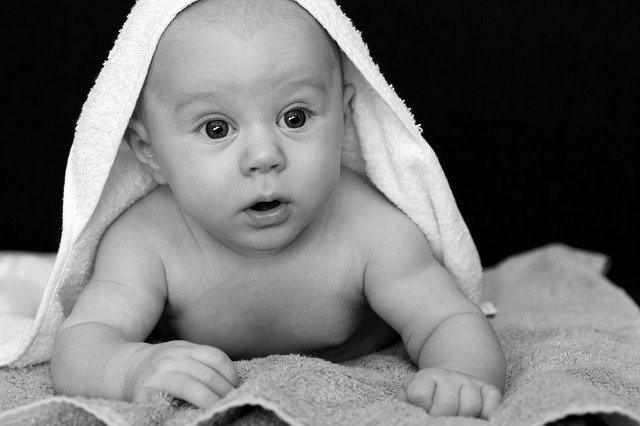If you are a new parent, you are probably wondering when your baby reaches his or her new milestone in life such as walking or dropping to one nap. Moreover, there might be questions lingering in your mind and “when do babies stop drooling” might be one of them. Drooling may be caused by various things. Let us find out more about it in this article.
Why do Babies Drool?
Babies drool for various reasons. However, identifying the reasons may help you manage the drooling with your baby. Besides, if you are able to know the reasons, you might even be able to prevent it. Here are some of the common reasons why baby drools constantly:
1. Teething
When babies are teething it may cause immense discomfort to the gums and oral cavity of your baby. Moreover, teething may even affect your baby’s sleep patterns. When your baby is teething, it may cause excessive drooling, especially if your baby is feeling discomfort during teething. Moreover, baby teeth have roots and it may take some time to develop and cause some inflammation in the gums of your baby.
2. Low oral sensory awareness
Babies develop their sensory skills as they develop. Moreover, they learn about their bodies in various ways and they may develop their body map over time. When babies are just a few months old, they usually have low oral sensory awareness which may cause them to drool without noticing it. Sensory awareness eventually develops in babies and it is not a cause of concern in the first few months of your baby’s life.
3. The mouth is often open
Babies may play with their mouths or tongue as they grow. Moreover, they may even stick their tongues out as a way to communicate or for other various reasons. But, when babies stick their tongues out very often, it may cause them to drool excessively. Also, when the mouth is often open, it gives your baby fewer chances to swallow saliva and in turn constantly makes your baby drool.
4. Difficulty in swallowing
Babies may have difficulty in swallowing for various reasons. It may be due to a mouth infection, teething pains or other medical conditions. Due to the difficulty in swallowing that your baby may have experienced, it may cause babies to drool excessively. Once you notice your baby drooling excessively due to a suspected mouth infection or medical condition, you may want to bring your child to his or her pediatrician.
5. Craving
It is a normal reaction for babies to drool when they are craving for something, especially food. However, in babies, this may also happen to non-food items that may look tasty to them. Besides, even adults produce excess saliva when they are craving for something and it is something that is deeply rooted in childhood. When babies crave for something, they may drool excessively for a short time. However, when their craving is satisfied, it usually stops or goes away.
6. Focused on motor activities
Babies don’t always have fine motor skills the moment they enter the outside world. Moreover, motor skills often develop as your baby grows. During the first few months when your baby becomes more mobile, he or she may not be able to focus on multiple things at the same time. Besides, when a baby is very focused on a specific motor task, he or she may have difficulty focusing on their mouths and they eventually begin to drool.
7. Side effects of some medications
Some medications can increase your baby’s saliva as a side effect. Moreover, some medications do not taste good for your baby and may, therefore, cause drooling. Ask your pediatrician about the potential side effects of some medications that your pediatrician has prescribed. But, if drooling is only caused by the taste of the oral medication, you can expect it to go away when your baby is done with the medication.
8. Poor facial muscle strength
Babies develop their motor skills and muscle strength as they grow. However, facial muscle strength may need more time to develop. At first, facial and oral muscles aren’t strong. But, as babies practice their facial muscles, their strength eventually develops. However, some medical conditions affect the overall muscle strength of your baby. Some conditions may cause facial muscle paralysis of all ages. So, you might want to get your baby screened for these conditions if you suspect weak facial muscles. This may cause excessive drooling that may not go away as your baby age. On the contrary, drooling may get worse if the condition is not addressed.
When do Babies Stop Drooling?
Drooling is usually begins to slow down when your baby is 6 months old. However, there may still be some drooling after this age. Babies almost entirely stop drooling at around 24 months old. But, many things may affect the drooling of your baby. But, if you suspect that the excessive drooling is due to a medical condition, you have to consult your pediatrician for possible interventions to help your baby.
How to Help Baby Stop Drooling?
Babies don’t always stop drooling at the same age. If ever your baby has stopped drooling at an earlier age, it is totally fine since even twins and multiples may differ to some extent. On the other hand, if your baby is still drooling past 24 months of age, it may be fine as long as there is no underlying medical condition that is causing it.
When do babies stop drooling? Usually, drooling is lessened when your baby reaches 6 months old and drooling is almost eliminated at 24 months old. Many things may cause your baby to drool which is normal. But, if drooling is caused by a medical condition, it has to be addressed.










 Store
Store